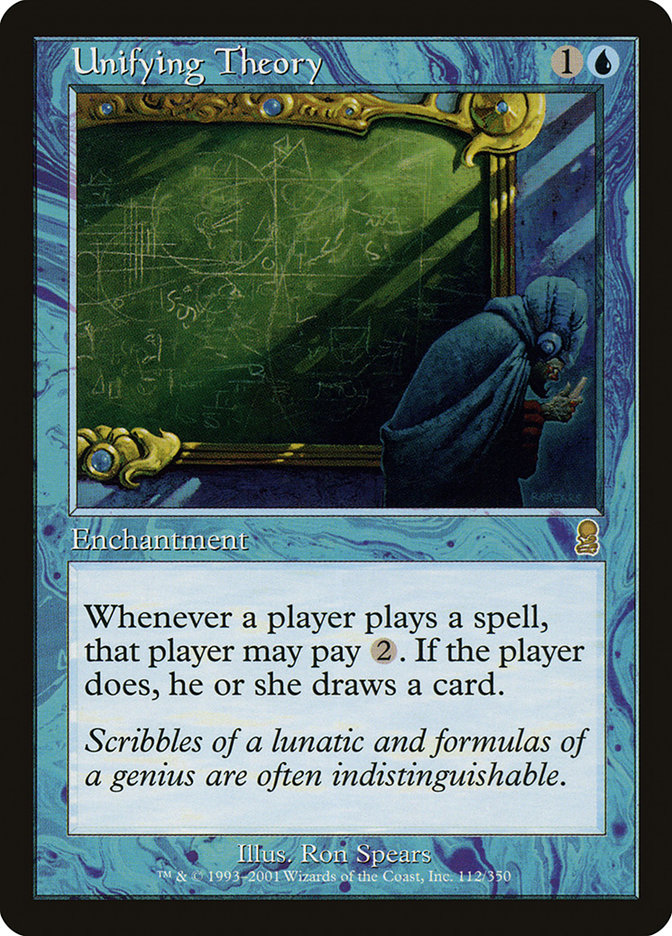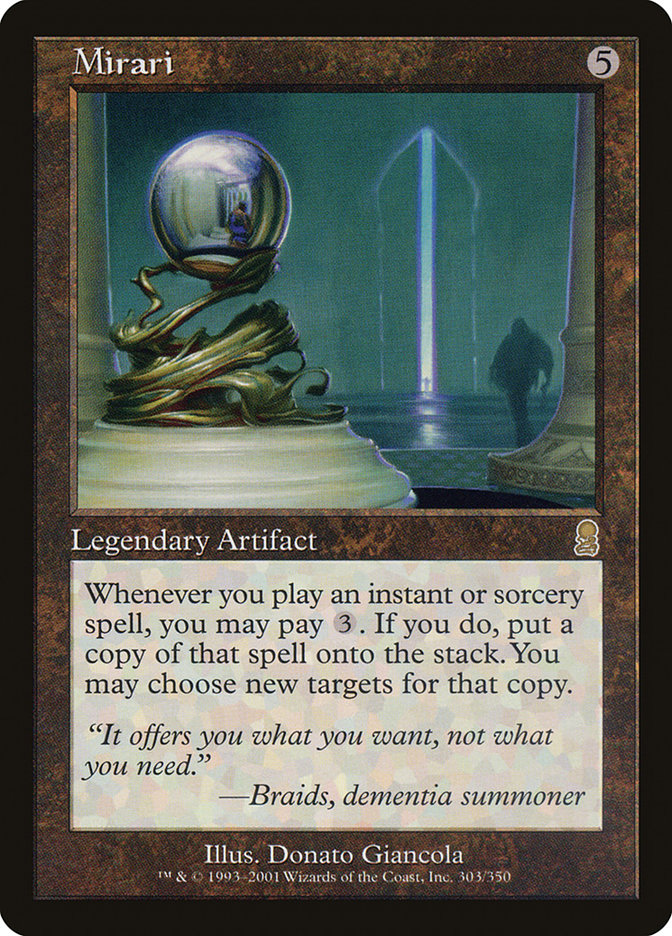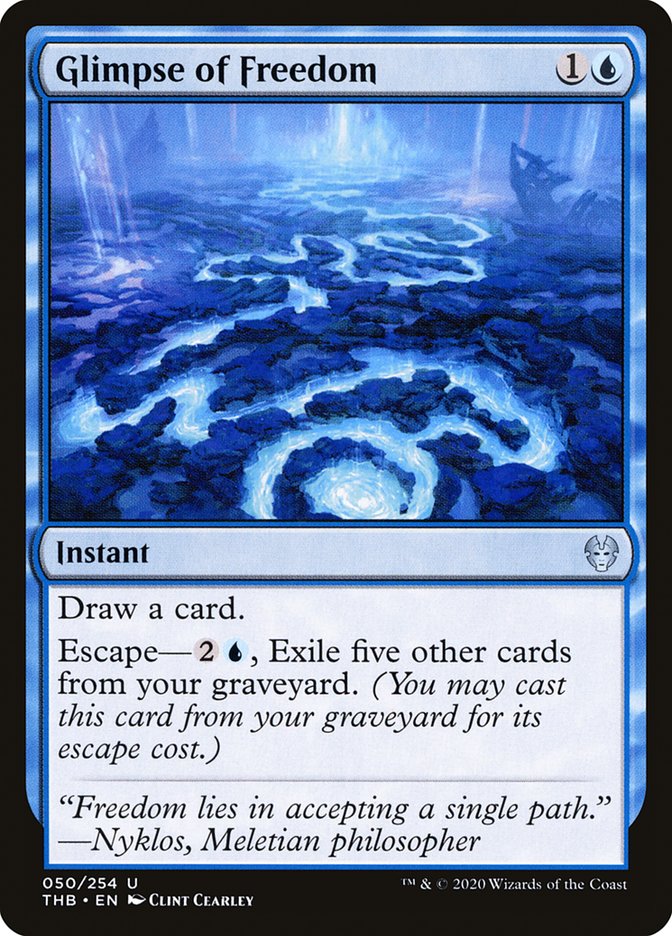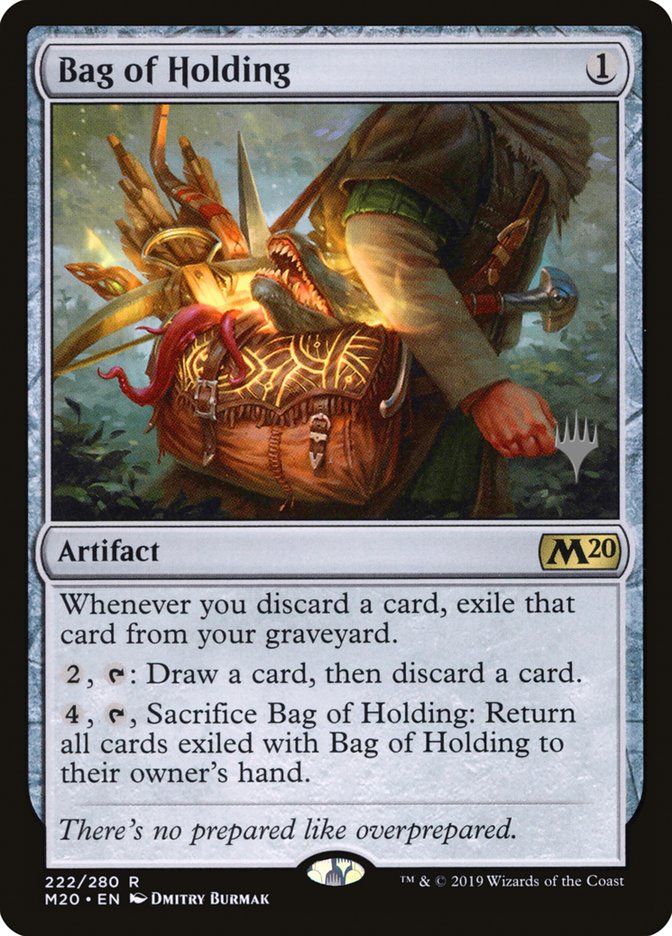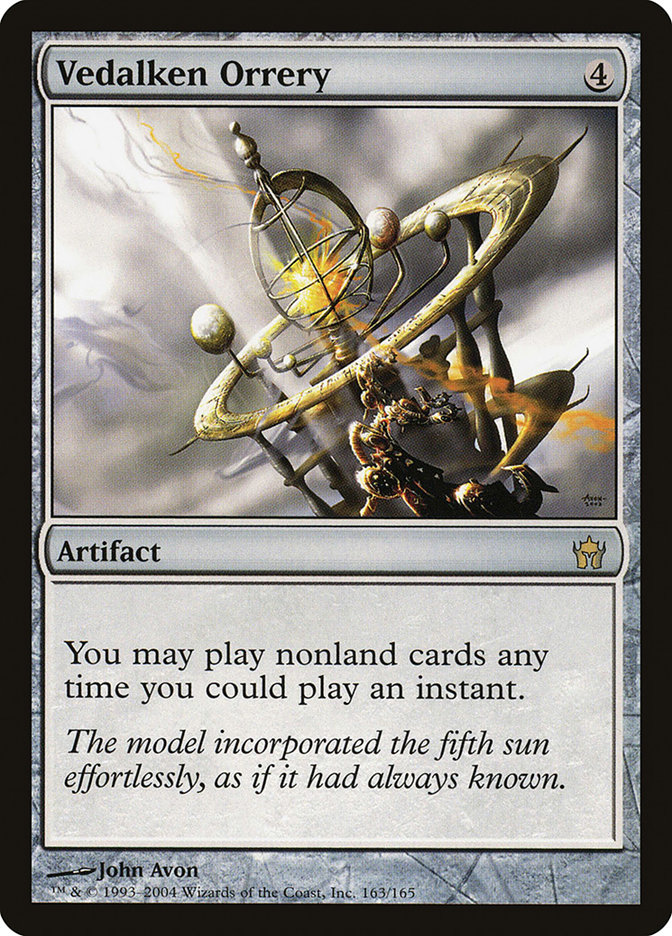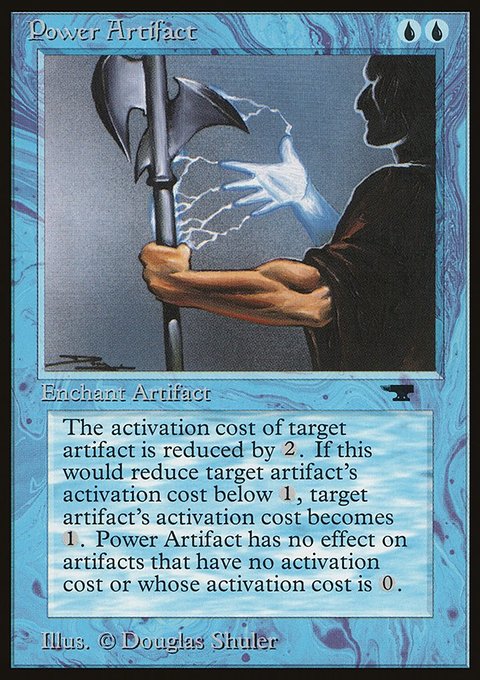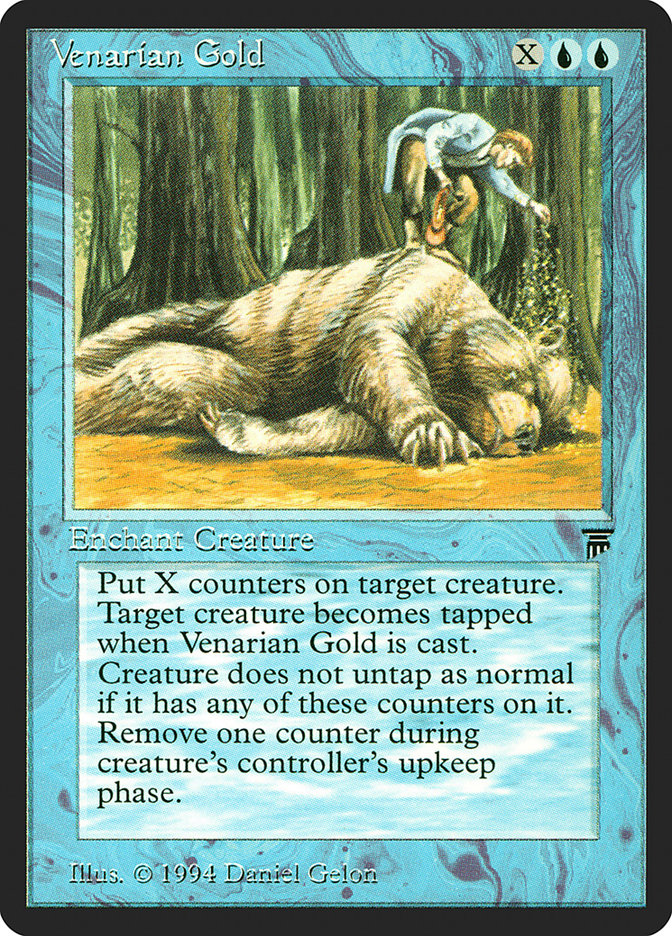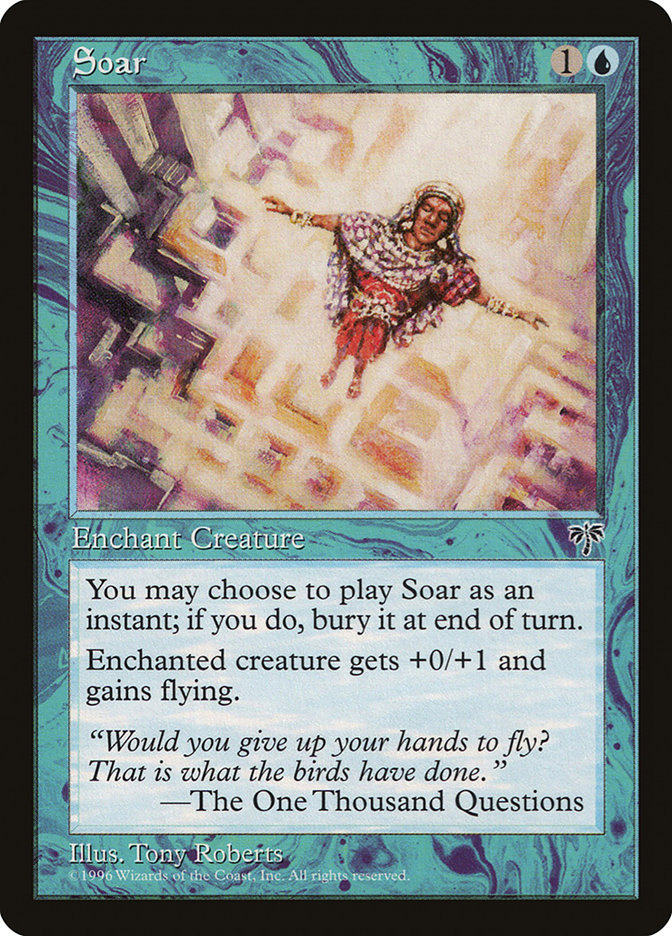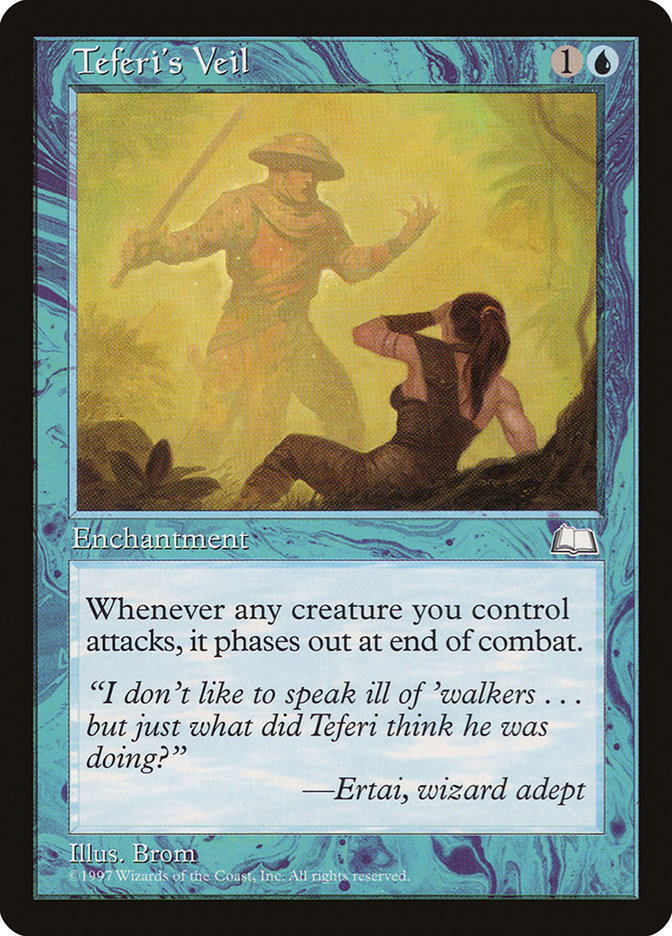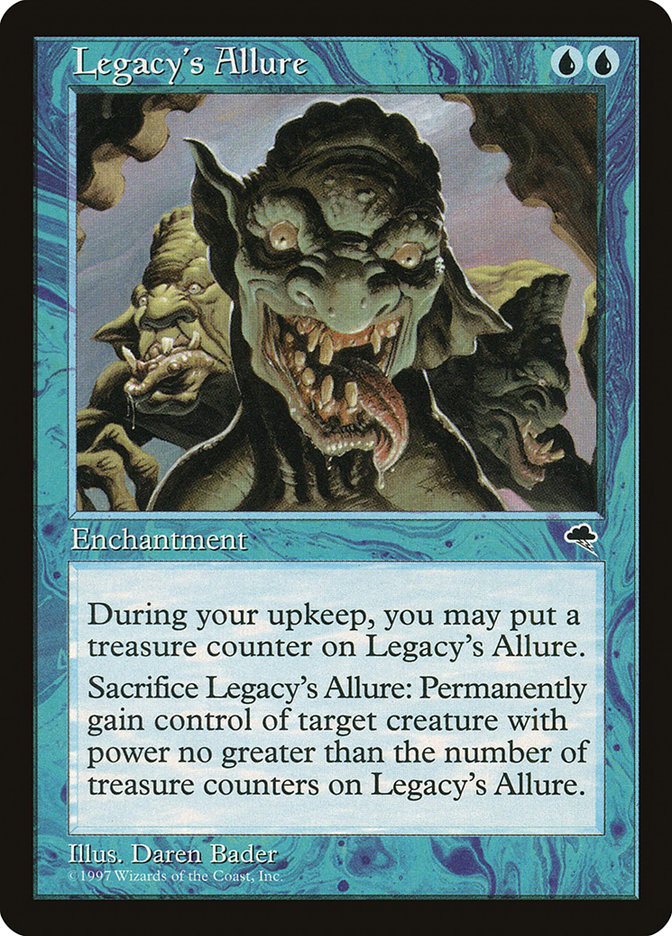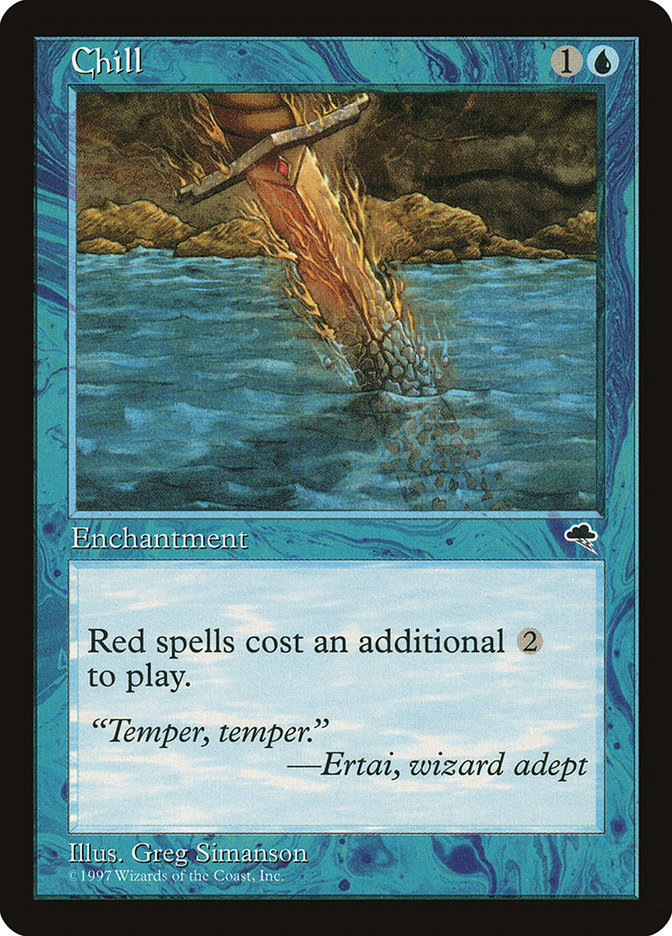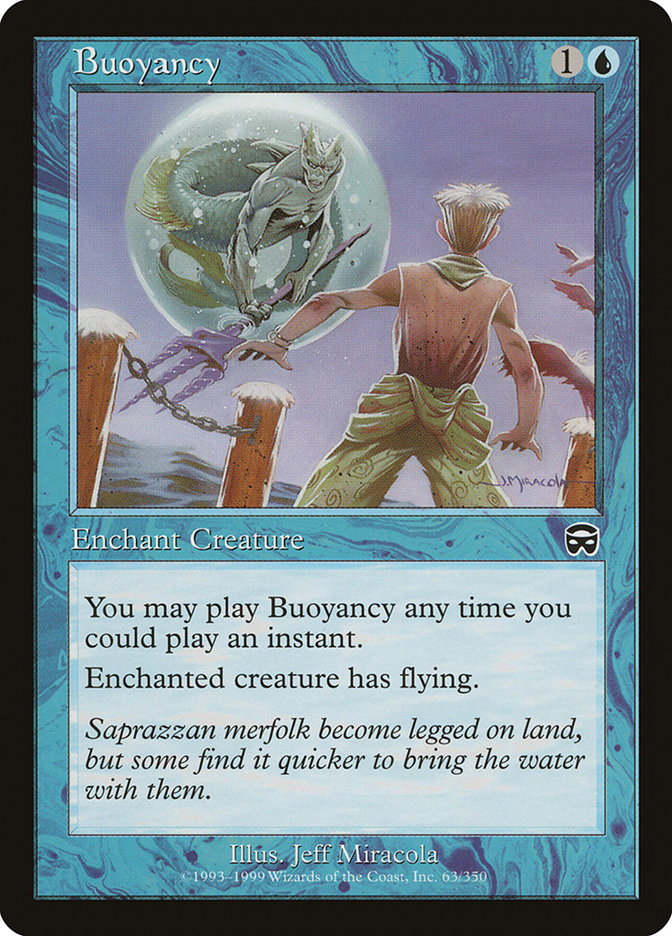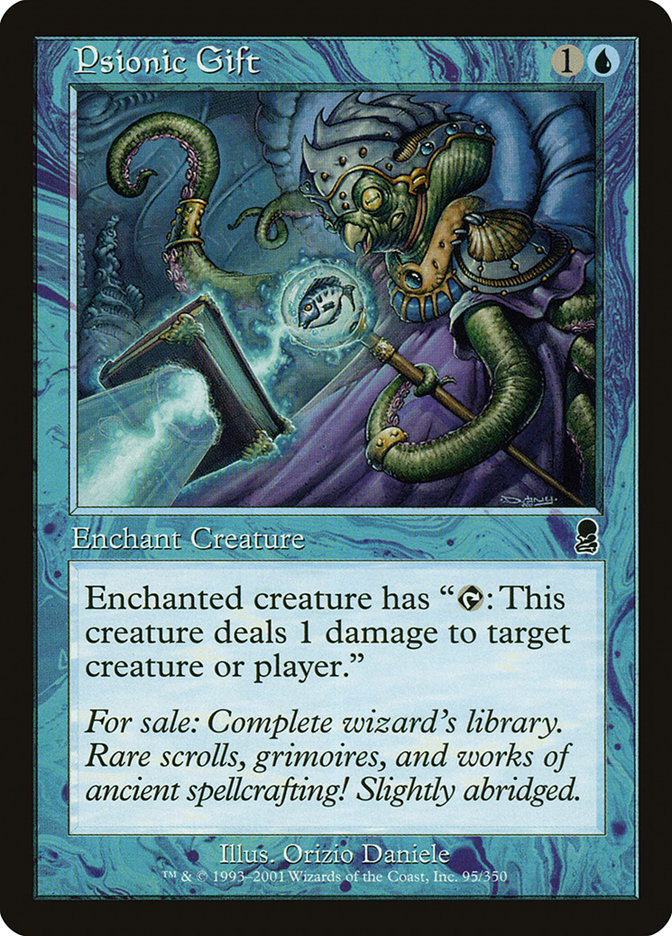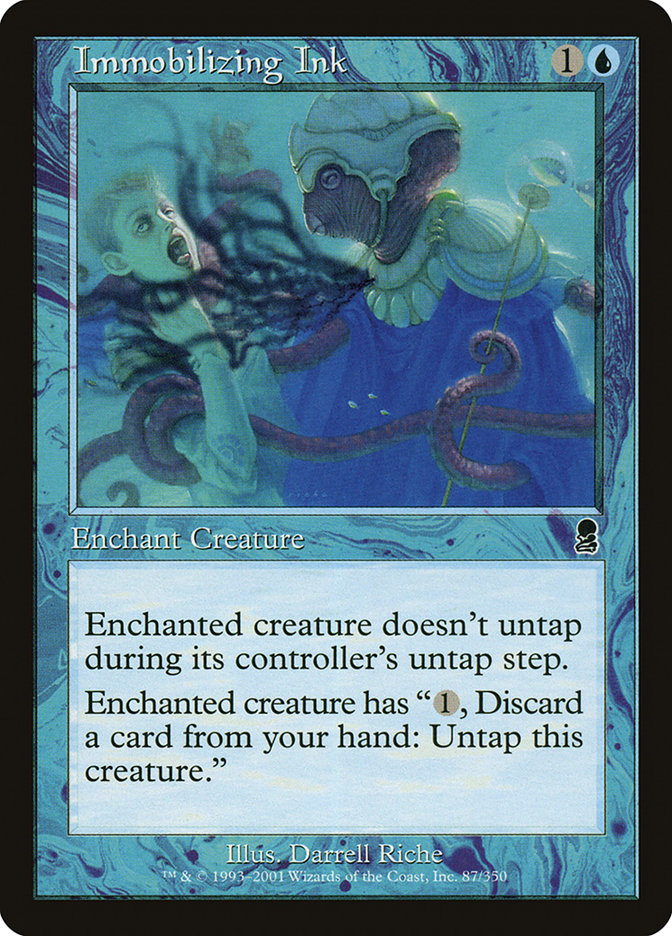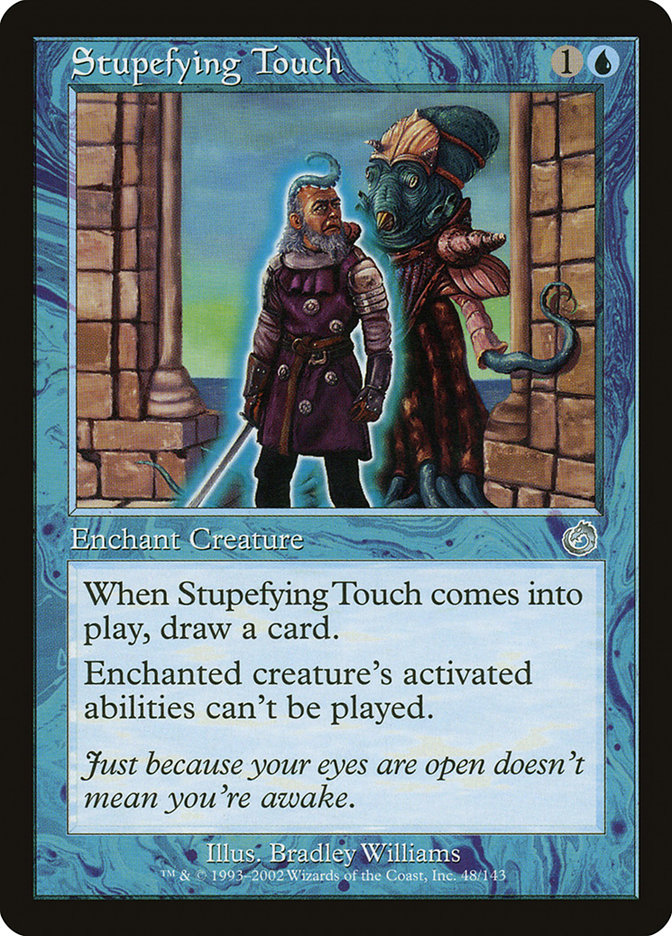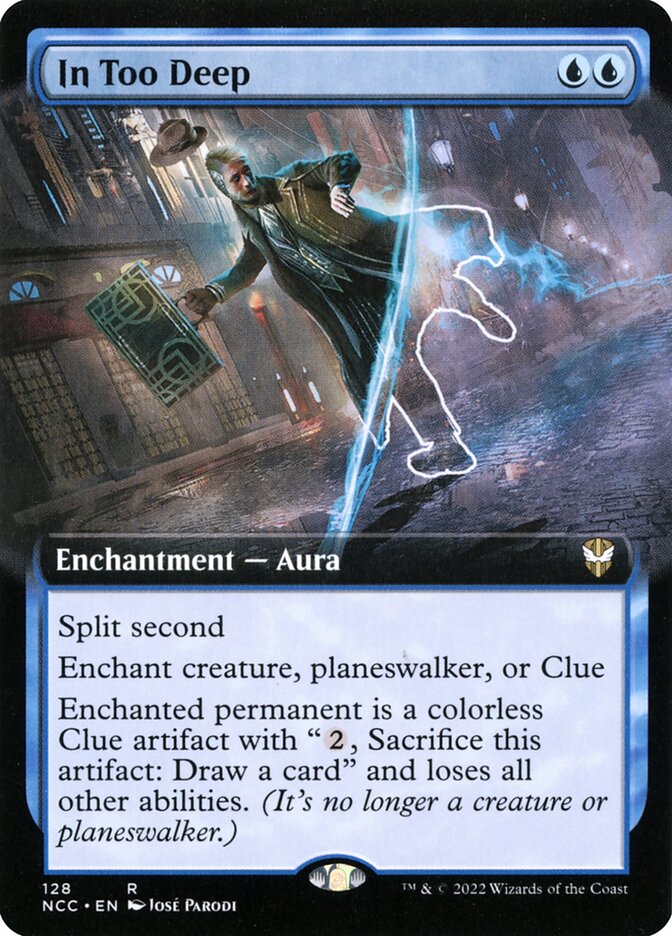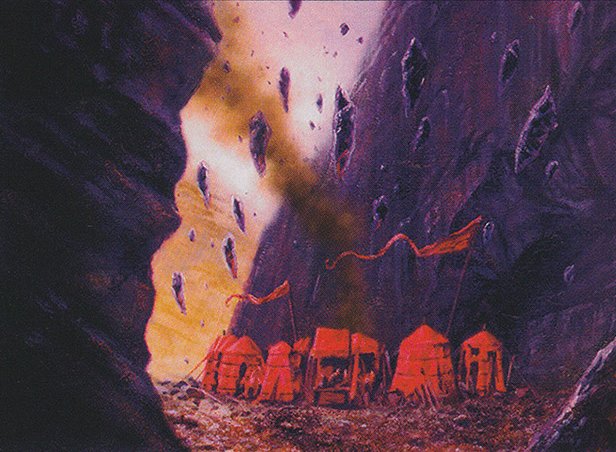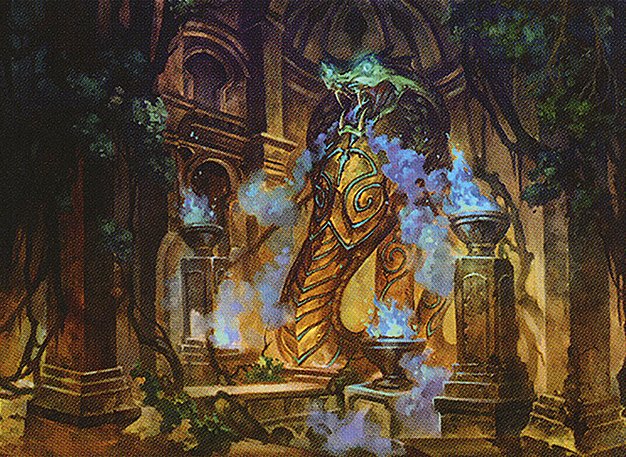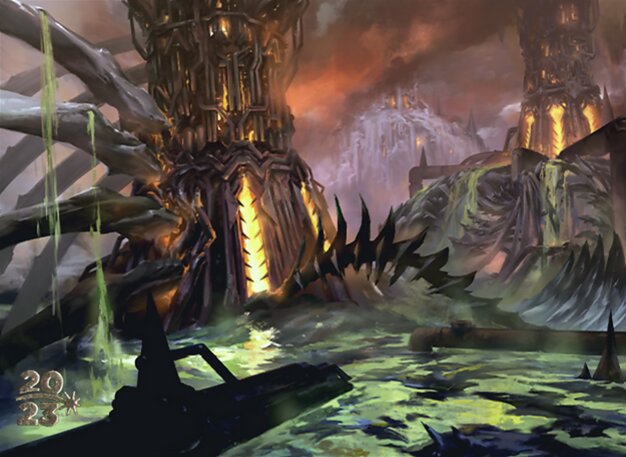Unifying Theory MTG Card
| Mana cost | |
| Converted mana cost | 2 |
| Rarity | Rare |
| Type | Enchantment |
| Released | 2001-10-01 |
| Set symbol | |
| Set name | Odyssey |
| Set code | ODY |
| Number | 112 |
| Frame | 1997 |
| Layout | Normal |
| Border | Black |
| Illustred by | Ron Spears |
Key Takeaways
- Unifying Theory grants card advantage by replacing spells played with new deck options.
- Demands specific mana and discards, potentially limiting its deck compatibility.
- Valuable for versatile decks and meta play, rewarding strategic spell casts.
Text of card
Whenever a player plays a spell, that player may pay . If the player does, he or she draws a card.
Scribbles of a lunatic and formulas of a genius are often indistinguishable.
Card Pros
Card Advantage: Unifying Theory excels at providing card advantage, allowing players to replace each spell they play with fresh options from their deck. This ensures a steady flow of resources and maintains pressure on the opponent.
Resource Acceleration: The card can facilitate resource acceleration by potentially reducing the cost of future spells. This efficient use of mana can lead to more impactful turns, getting you ahead of the competition.
Instant Speed: Being able to play at instant speed gives you the flexibility to respond to your opponents’ actions or optimize your own strategy during their turn, making it a powerful tool in any MTG player’s arsenal.
Card Cons
Discard Requirement: Unifying Theory necessitates discarding a card to activate its crucial feature. For players controlling their hand size, this can be particularly inconvenient, potentially causing a setback if they’re parting with a valuable card.
Specific Mana Cost: This card demands a specific combination of blue and green mana, potentially restricting its integration to decks that run these colors. Players with a more diverse or different color palette might find this an obstacle to overcome.
Comparatively High Mana Cost: With a casting cost of three mana, including one blue and one green, Unifying Theory falls into a higher mana bracket for its effects. In competitive play, where efficiency is key, there might be alternatives that provide similar benefits for a lower cost.
Reasons to Include Unifying Theory in Your Collection
Versatility: Unifying Theory is a flexible inclusion, offering card draw which can be fundamental in various deck builds. Its universal benefit makes it a staple for players who enjoy adapting to different playstyles.
Combo Potential: With its latent ability to draw potentially numerous cards, Unifying Theory can act as an engine in combo decks, meshing well with strategies that revolve around casting multiple spells in a single turn.
Meta-Relevance: In environments where decks are constructed around synergizing with the cast of numerous spells, Unifying Theory can become an essential component, providing continuous value as the game progresses.
How to beat
Unifying Theory, the enigma that prompts Magic: The Gathering players to adapt their strategies, can be a real game changer if left unchecked. This card allows players to delve deeper into their decks, unlocking potential with every played spell. To counter this, you’ll want to employ disruption tactics effective against card advantage engines. Directly removing it by way of enchantment destruction is a clear solution – think Disenchant or Naturalize, which cleanly expel Unifying Theory from the battlefield. In blue, counterspells are your best friend, preventing Unifying Theory from ever resolving in the first place.
Similarly, anti-search effects like Aven Mindcensor can hinder the Theory’s ability to streamline an opponent’s game plan. If Unifying Theory is integral to your opponent’s strategy, a surgical approach can cripple their momentum. Thoughtseize or Duress offer preemptive discard options to eliminate the card before it poses a significant threat. In essence, maintaining control of the board and applying pressure with these techniques ensures Unifying Theory doesn’t unify anything for your opponent.
Deckbuilding that includes answers to key cards like Unifying Theory is vital for competitive play. By planning ahead and incorporating versatile answers, you ensure that your deck remains resilient against strategies that rely heavily on such synergy-driven cards.
Cards like Unifying Theory
Unifying Theory is an intriguing addition to the roster of enchantments that focus on card synergy and advantage in Magic: The Gathering. Its closest counterpart is perhaps Mirari, which also capitalizes on copying spells. Unifying Theory allows for a controlled manipulation of the course of play by providing an option to draw each time a nonland card is bounced to a player’s hand. Mirari, however, focuses solely on copying instant or sorcery spells for an additional cost without offering the direct card draw benefit.
Glimpse of Freedom is another card worth mentioning. It provides an option for card draw as well, but only via escaping it from the graveyard. Unlike Unifying Theory, it doesn’t synergize with the bouncing of nonland cards. Then there’s Bag of Holding, which captures discarded cards and offers potential for future draws, yet it lacks the immediate interactivity that Unifying Theory provides with played spells. The closest in ethos and versatility, perhaps, is Vedalken Orrery. Despite not drawing cards, it permits playing nonland cards as though they had flash, thus maximizing strategic options like Unifying Theory does.
Despite similarities with other cards, Unifying Theory brings a unique approach to card advantage and tempo, filling a specific niche for those who wish to gain value from card movement during the game.
Cards similar to Unifying Theory by color, type and mana cost
Where to buy
If you're looking to purchase Unifying Theory MTG card by a specific set like Odyssey, there are several reliable options to consider. One of the primary sources is your local game store, where you can often find booster packs, individual cards, and preconstructed decks from current and some past sets. They often offer the added benefit of a community where you can trade with other players.
For a broader inventory, particularly of older sets, online marketplaces like TCGPlayer, Card Kingdom and Card Market offer extensive selections and allow you to search for cards from specific sets. Larger e-commerce platforms like eBay and Amazon also have listings from various sellers, which can be a good place to look for sealed product and rare finds.
Additionally, Magic’s official site often has a store locator and retailer lists for finding Wizards of the Coast licensed products. Remember to check for authenticity and the condition of the cards when purchasing, especially from individual sellers on larger marketplaces.
Below is a list of some store websites where you can buy the Unifying Theory and other MTG cards:
- eBay
- TCG Player
- Card Kingdom
- Card Market
- Star City Games
- CoolStuffInc
- MTG Mint Card
- Hareruya
- Troll and Toad
- ABU Games
- Card Hoarder Magic Online
- MTGO Traders Magic Online
See MTG Products
Legalities
Magic the Gathering formats where Unifying Theory has restrictions
| Format | Legality |
|---|---|
| Commander | Legal |
| Legacy | Legal |
| Oathbreaker | Legal |
| Premodern | Legal |
| Vintage | Legal |
| Duel | Legal |
| Predh | Legal |
| Penny | Legal |
